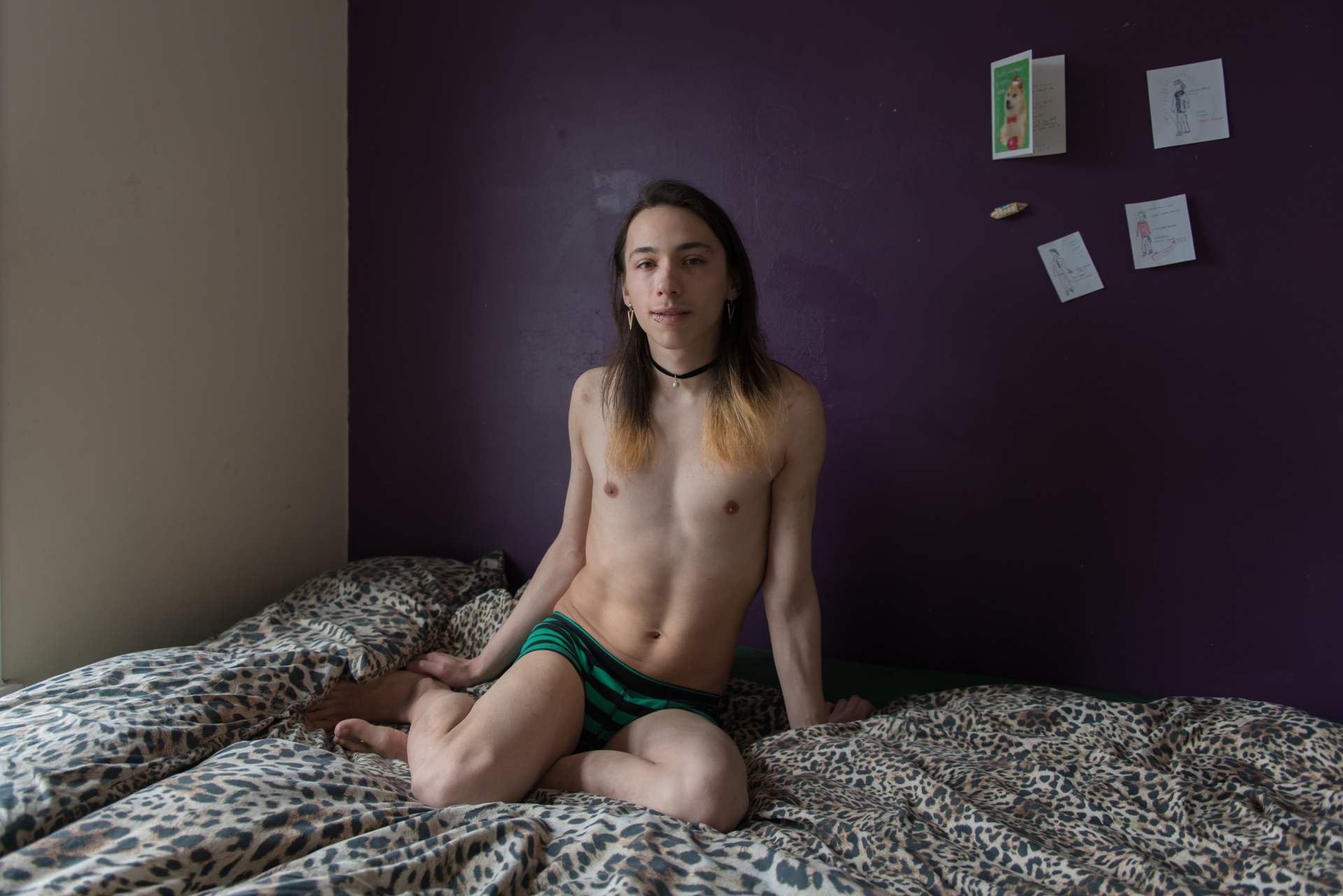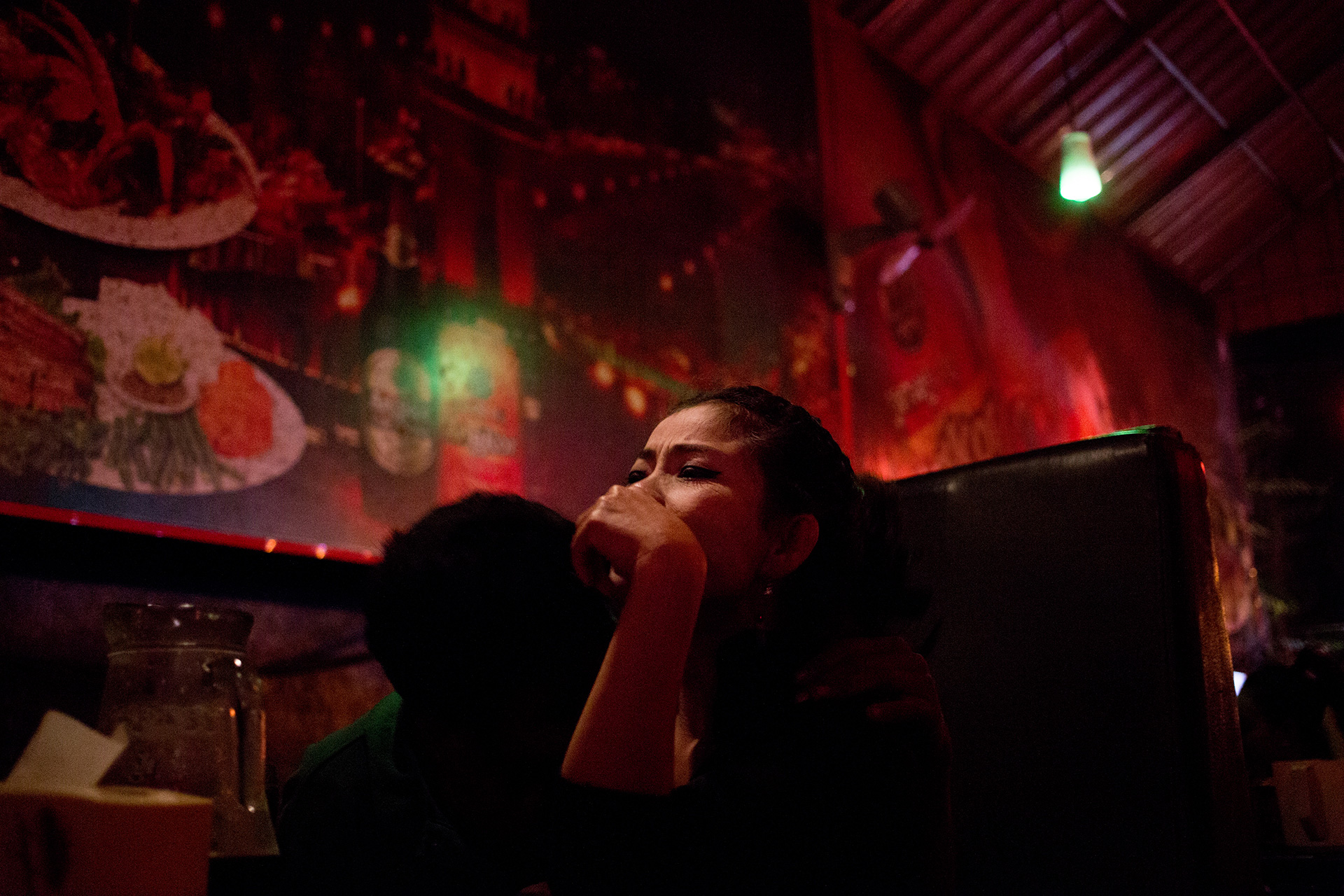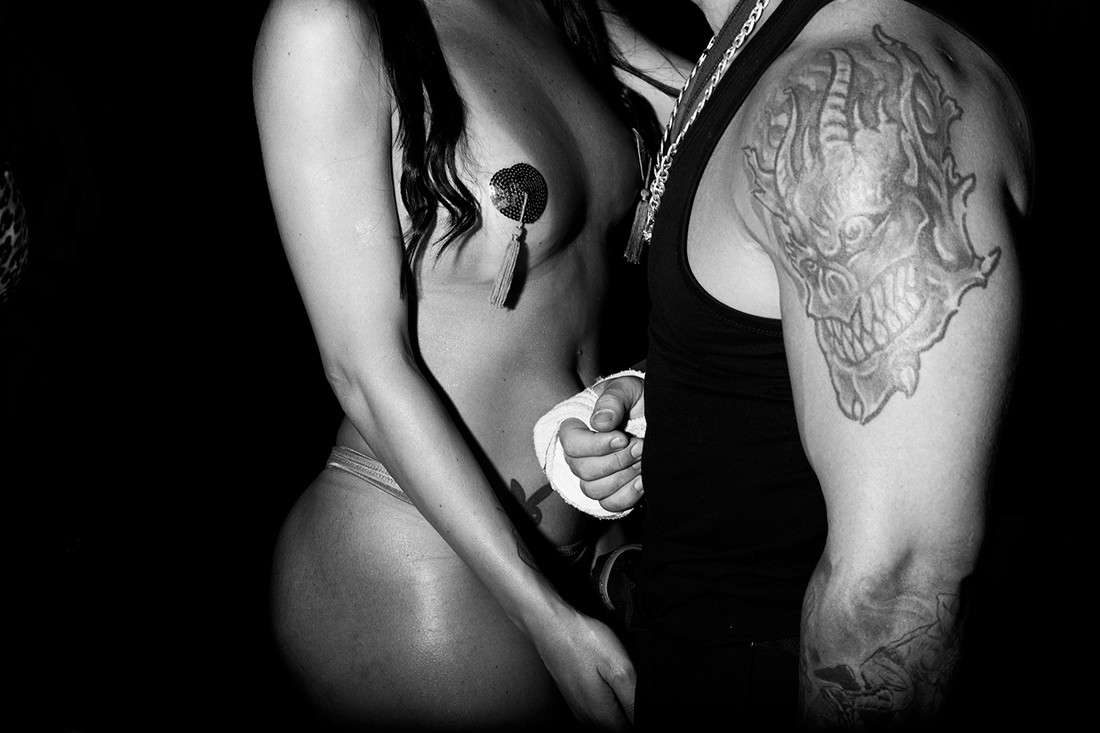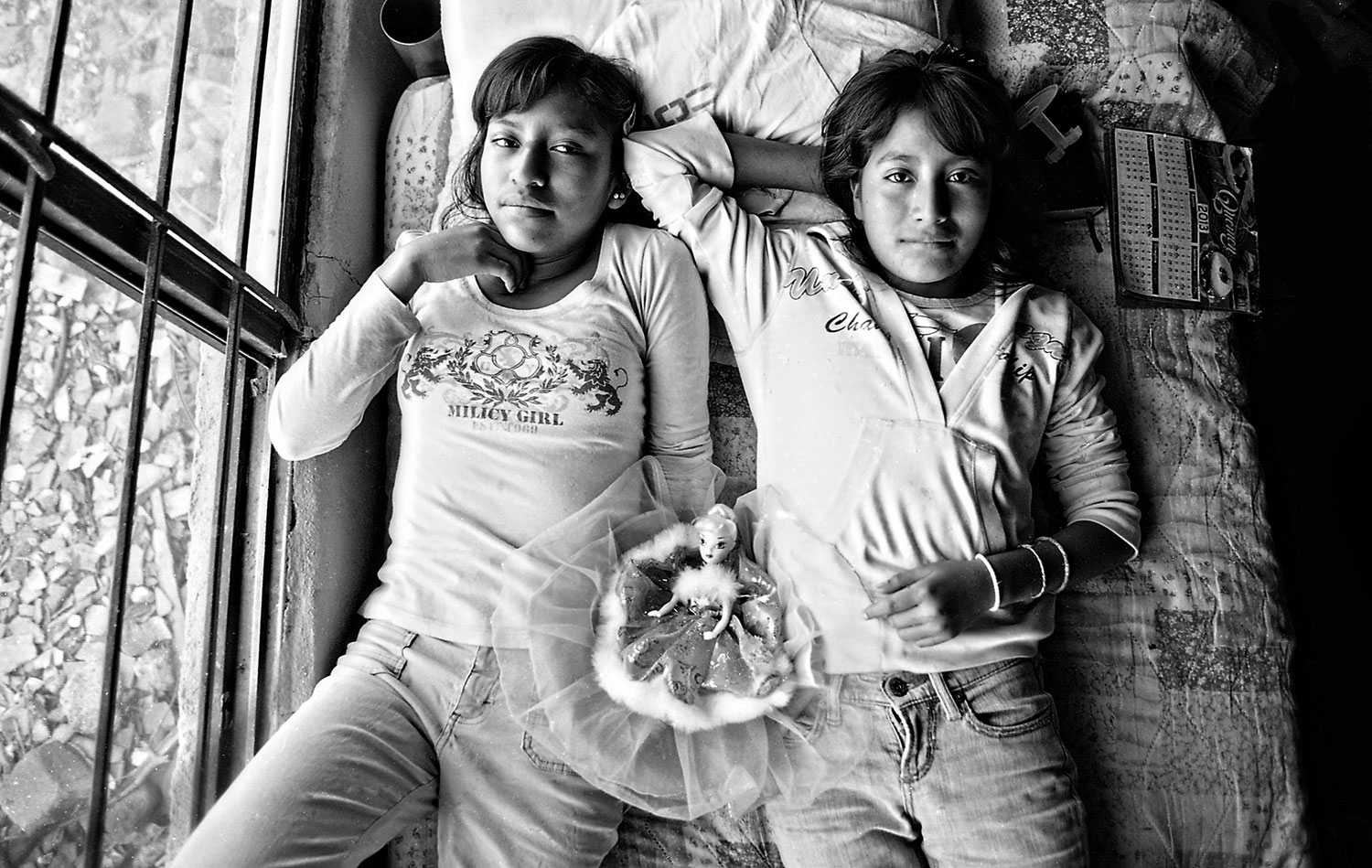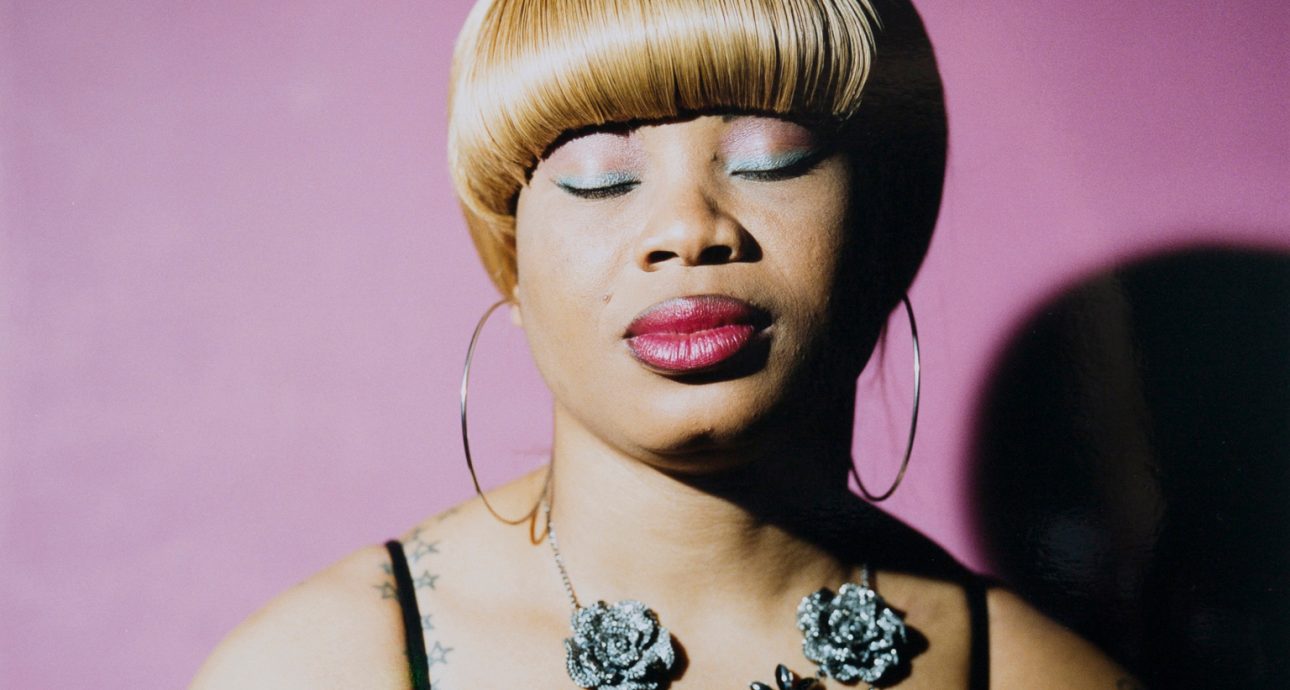
I’ve Never Been Big Sick:
Red Light District Women in the Series by Ulla Deventer
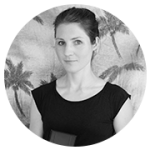
Freelance photographer from Hamburg, Germany. Studied photography in Hamburg, Antwerp in Belgium, and at the Ecole Nationale des Beaux Arts in French Lyon. Mostly works in Belgium and France. Exhibited her works in Belgium, the Netherlands, Germany, Portugal, and Luxembourg.
— Before I started this project I was working on a series about young drug addicts in the Ural Mountains. I lived there for one week in the rehabilitation center for women, located in a fenced-in house in a tiny village. I was intrigued by the high level of intimacy I could develop with these young women and how readily they allowed me into their world. After a couple of days, I became part of their everyday life. I did not have to ask my protagonists for a photo anymore. They brought their vision of portraits to me. They removed themselves from a cliché and allowed me to see them from a perspective that went beyond what I had expected.
When I moved to Belgium for my master’s degree studies in Antwerp, I wanted to continue with a long-term project on women in our society who are struggling with different shades of their personality in order to hide one part.
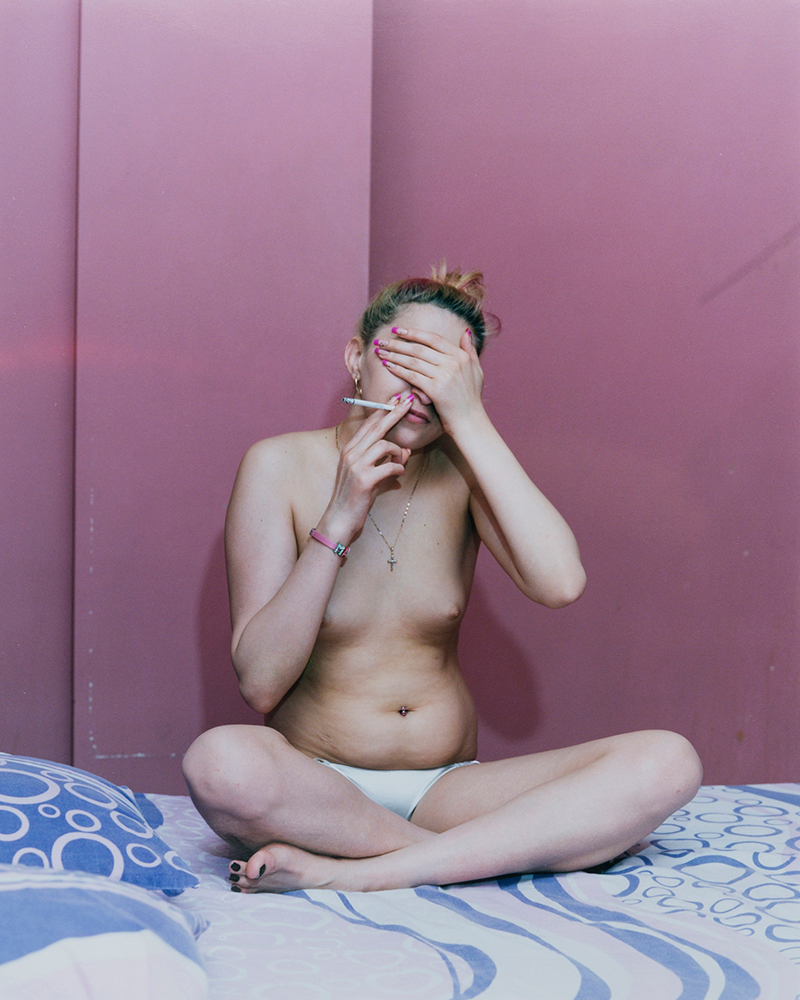
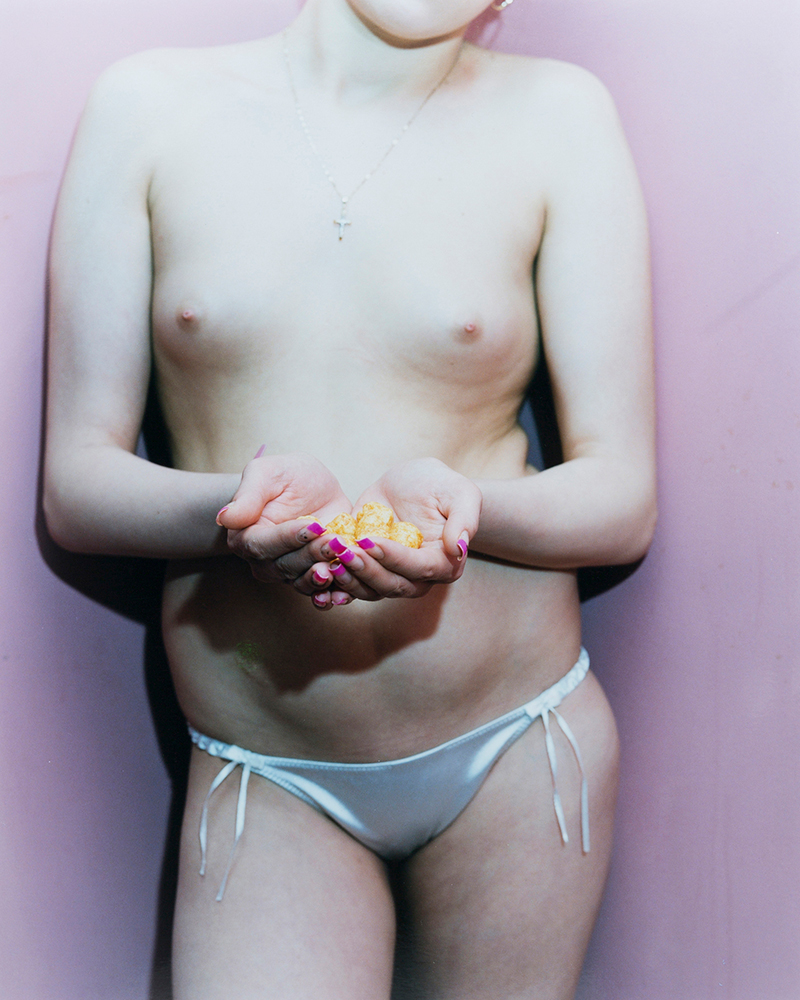
One day I walked randomly through the red light district in Brussels-Noord and was immediately fascinated by the women sitting behind their windows. I was thrilled by the different ways they exposed themselves, how they played a role by individual decoration of the spot or a personal style of their clothing. The same day I asked my first protagonist if she wouldn’t mind to have a look at my work and to collaborate for a project together… that was the very beginning.
Before I start to work in another city, I first do research about the prostitution situation there in general. Once I am in the field, I talk to many people and try to localize the red light districts which are often quite hidden if you’re not familiar with the city. A good network with people connected to the milieu is really important. While building this network, I simply go to the workplaces of the women, introduce myself, show them my little book with my works and just ask them to participate in my project. Of course I do select them in the way that I ask those for whom I feel a certain sympathy.
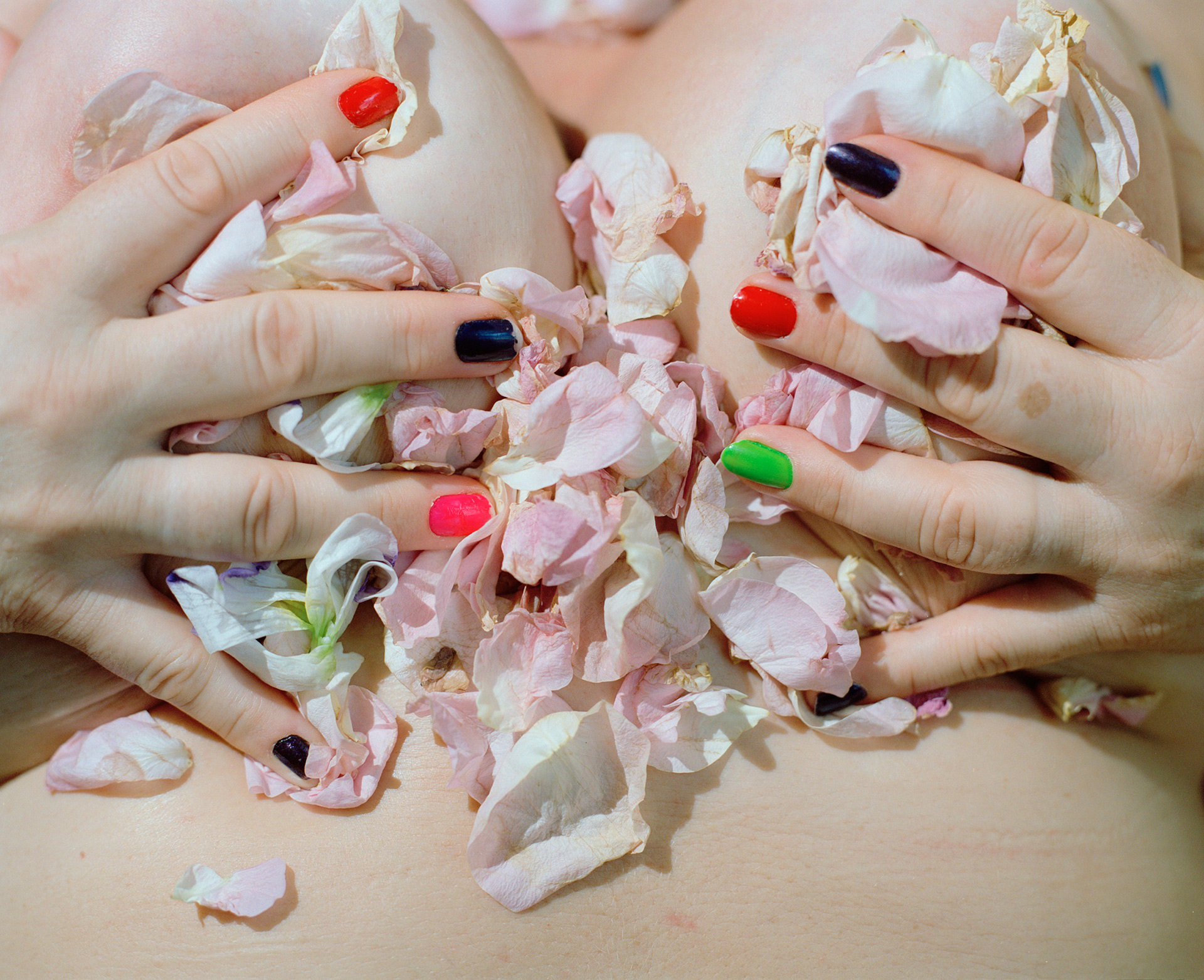
The most difficult aspect is that they all need to stay anonymous. Sometimes even their own husbands don’t know what their wives are doing all day long. They also risk being expelled from their families. That makes it more sensitive for me to gain their confidence. I guess it is helping that I am a woman, introduce myself as an artist, and assure them of their anonymity.
Sure this needs patience and empathy, it can be exhausting and sometimes frustrating, but once I succeed and meet a new protagonist, I know it is so worth it.
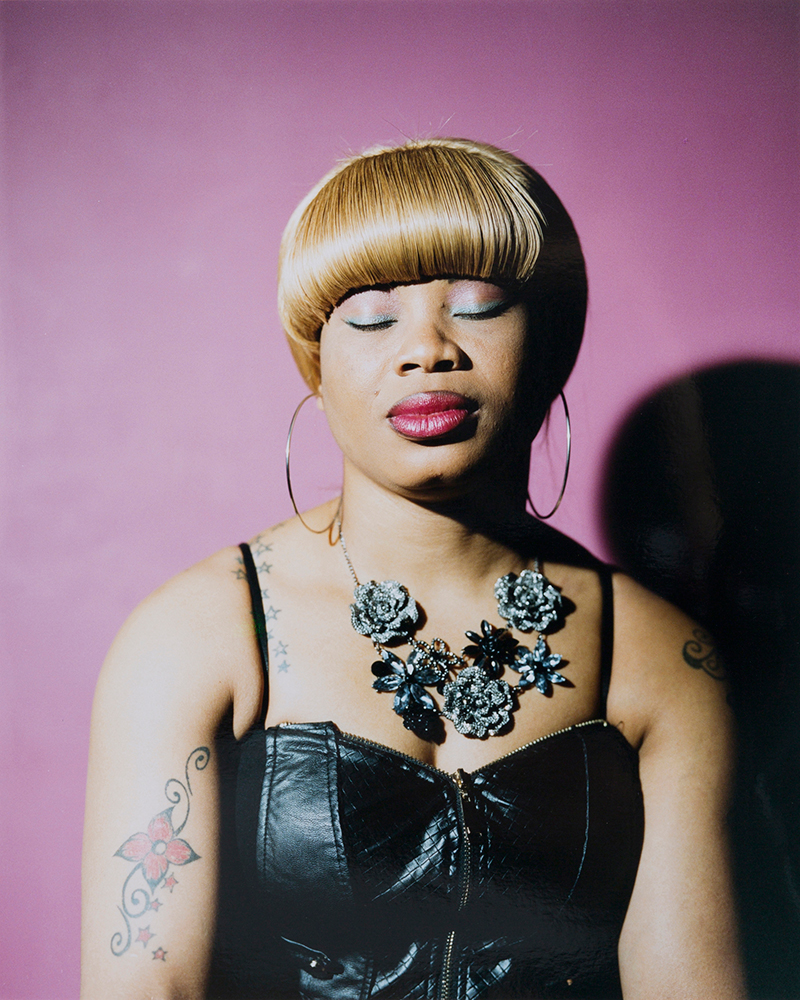
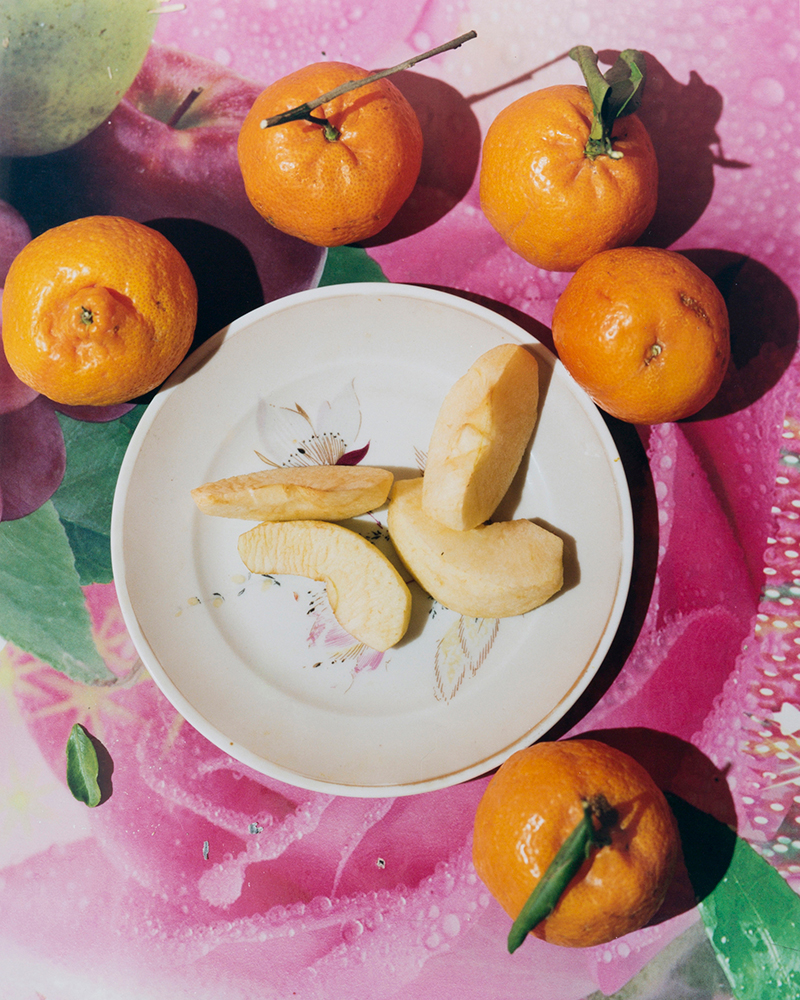
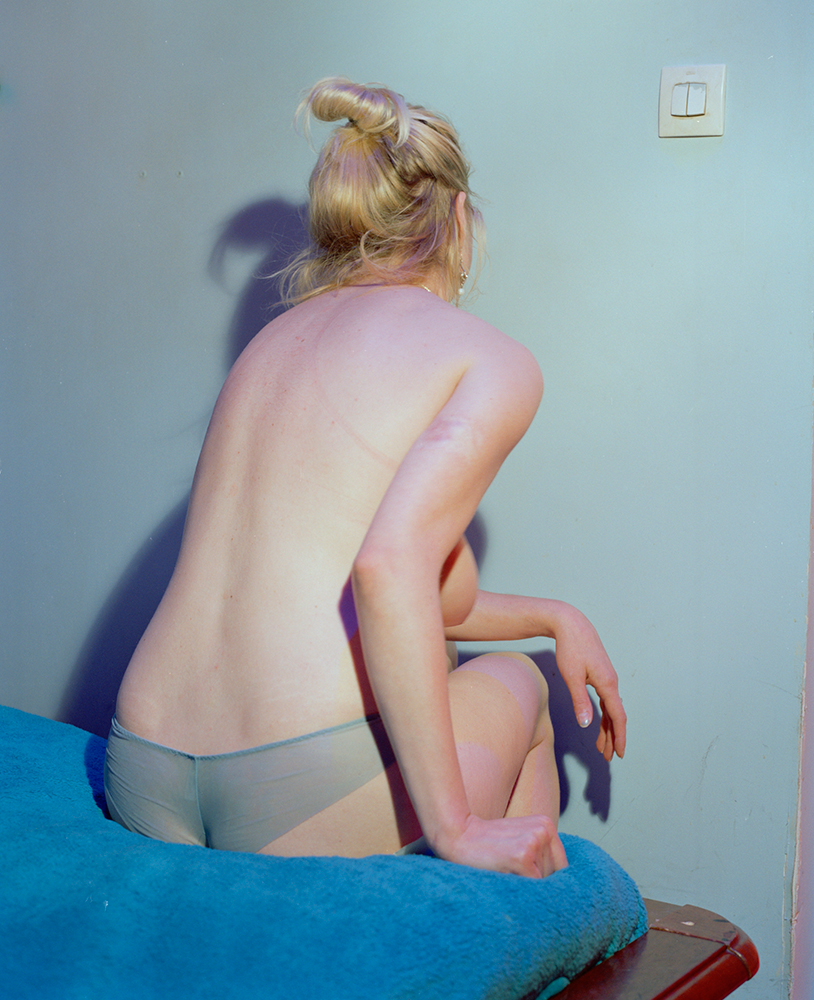
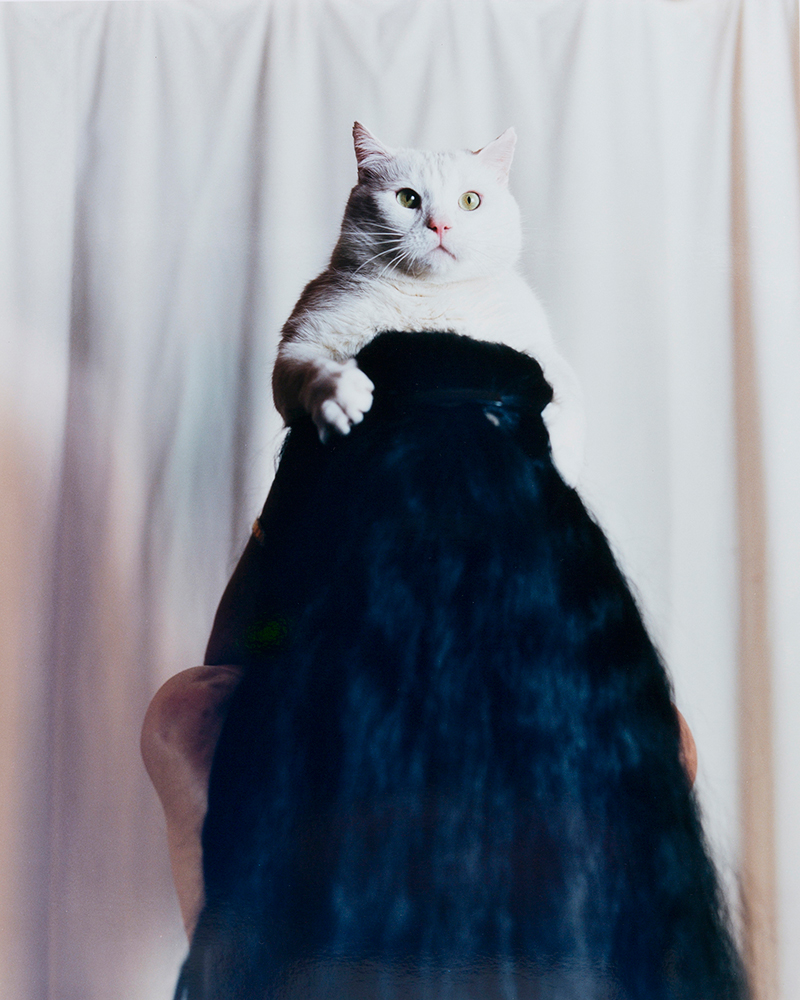
I love how photography can build the connection to people you would never meet elsewhere and is guiding you through unforgettable life experiences.
It’s very enriching for me to chat with these women. They all have a strong character, and as you can imagine, many life experiences. They carry their sad and dark stories, as everybody does. At the same time, there are beautiful and very funny conversations. Some people imagine a rough and melancholic atmosphere there all the time, but that is not true. These women know how to deal with their situation. „You have to relativize things,” is one quote that cuts right to the heart of the matter.
They were teaching me a lot. These women are artists, too. They are playing roles all the time. I don’t want to whitewash what they are doing, but they have all my respect.
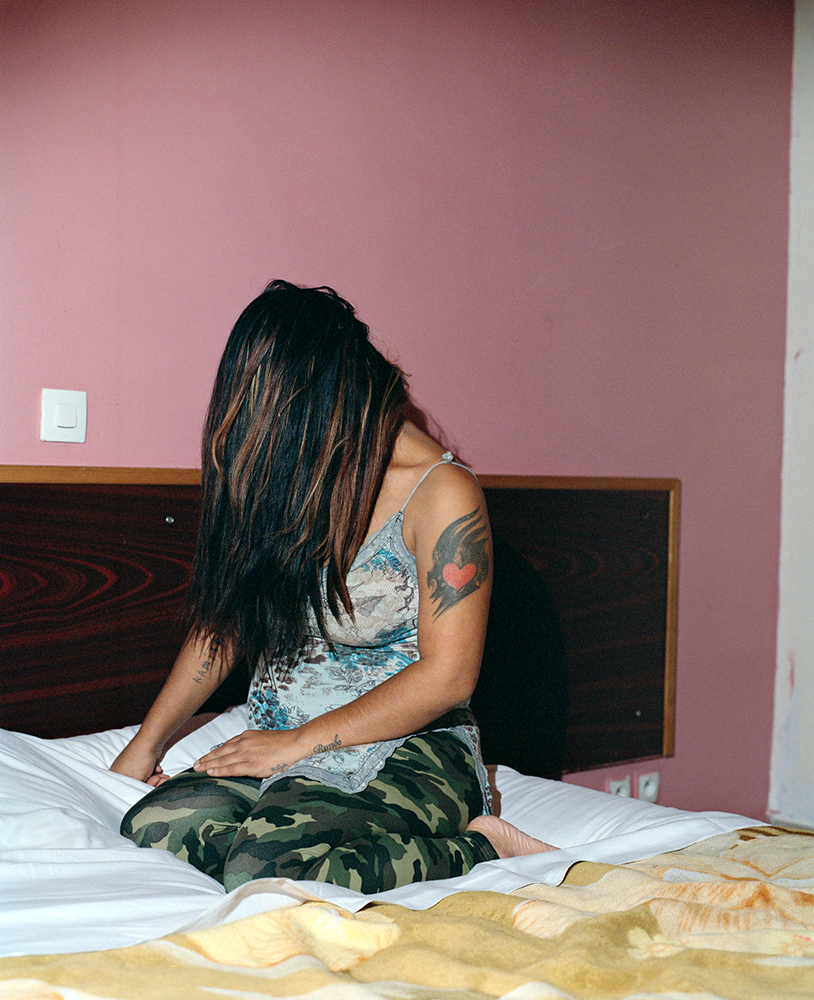
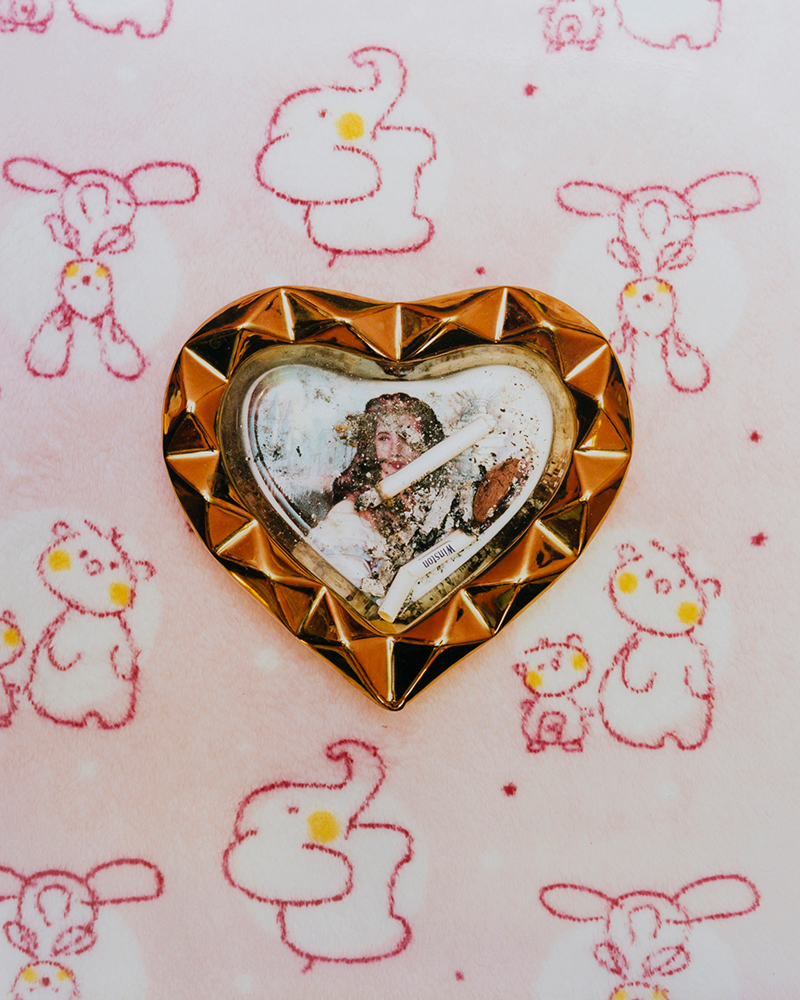
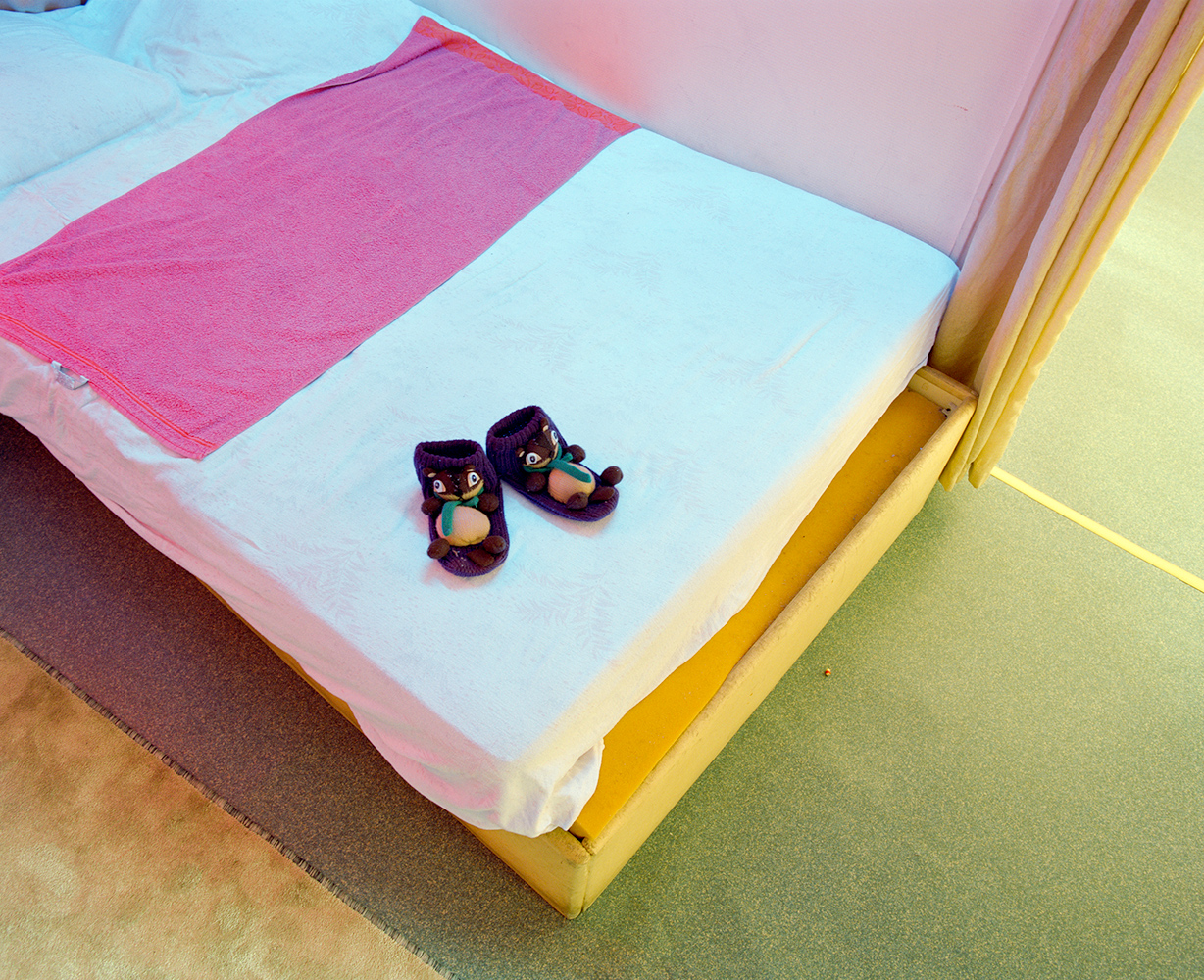
Building trust by spending time and chatting with the women is the main part of the work. Only if they open up to me am I able to construct new images, which are all based on real-life clues, a verbal account or a simple personal object I discover at their places. In the beginning, we always meet in their working environments. Often we are spending hours together while she is waiting for the next client. Sometimes I take a new picture, or I show her the pictures we took last time.
Over the years I have built some very close relationships with some of them. I visit those that I have grown close to at their private houses, where I often stay overnight. We are having dinner together, going for walks, watching TV and chatting about men, life and everything and anything. Sometimes it is difficult to stay focused on the work if I feel that close, but at the same time it is important to immerse yourself totally in the situation and to share my own feelings. So it’s often about keeping the balance between being the photographer and being a friend.
The main idea is to create images that go beyond the stereotypes and clichés that we all have in our heads concerning prostitution. To tell the little side aspects, to share my point of view from my female perspective, to give them a voice through the images.
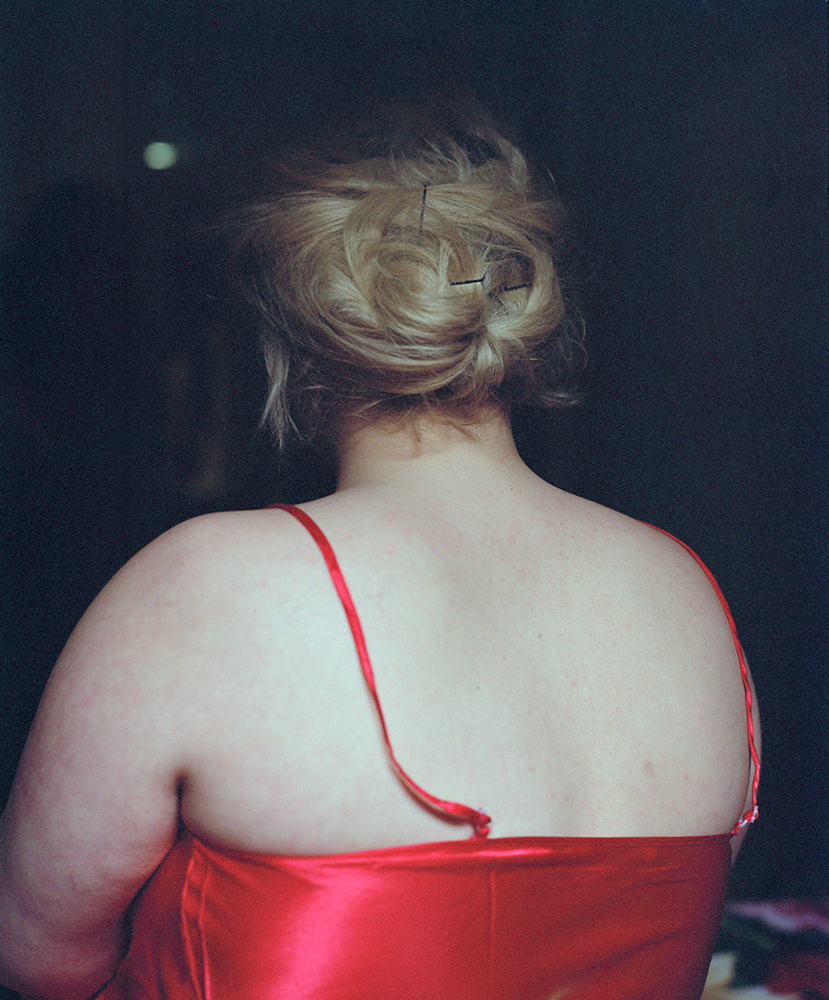
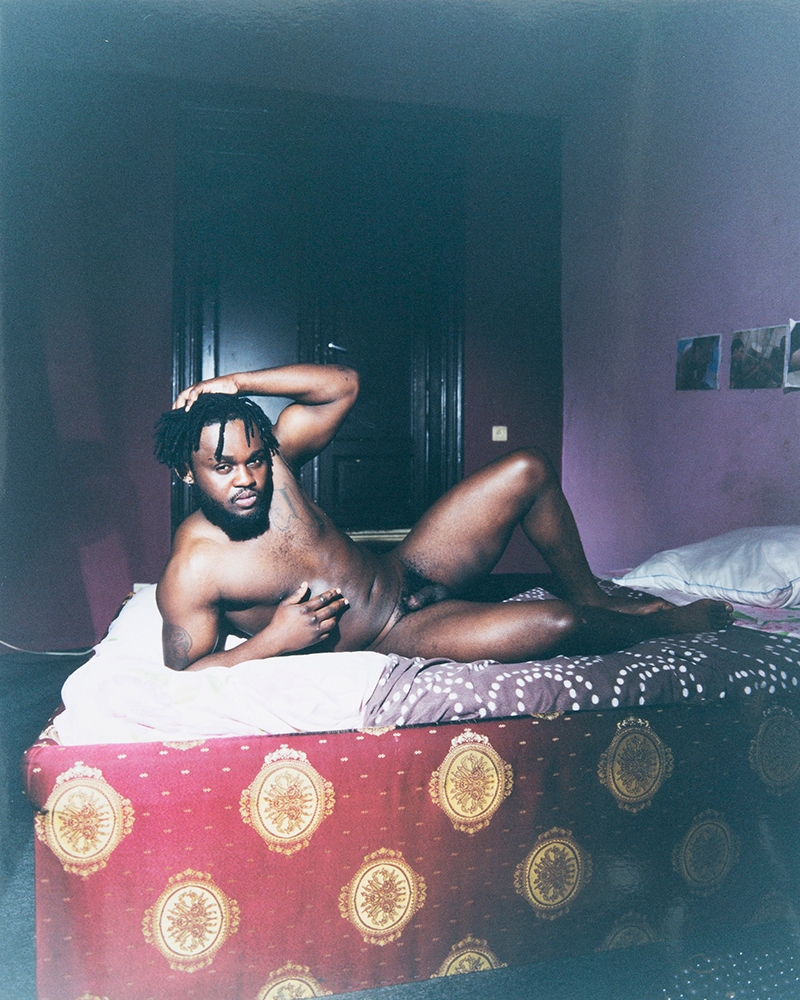
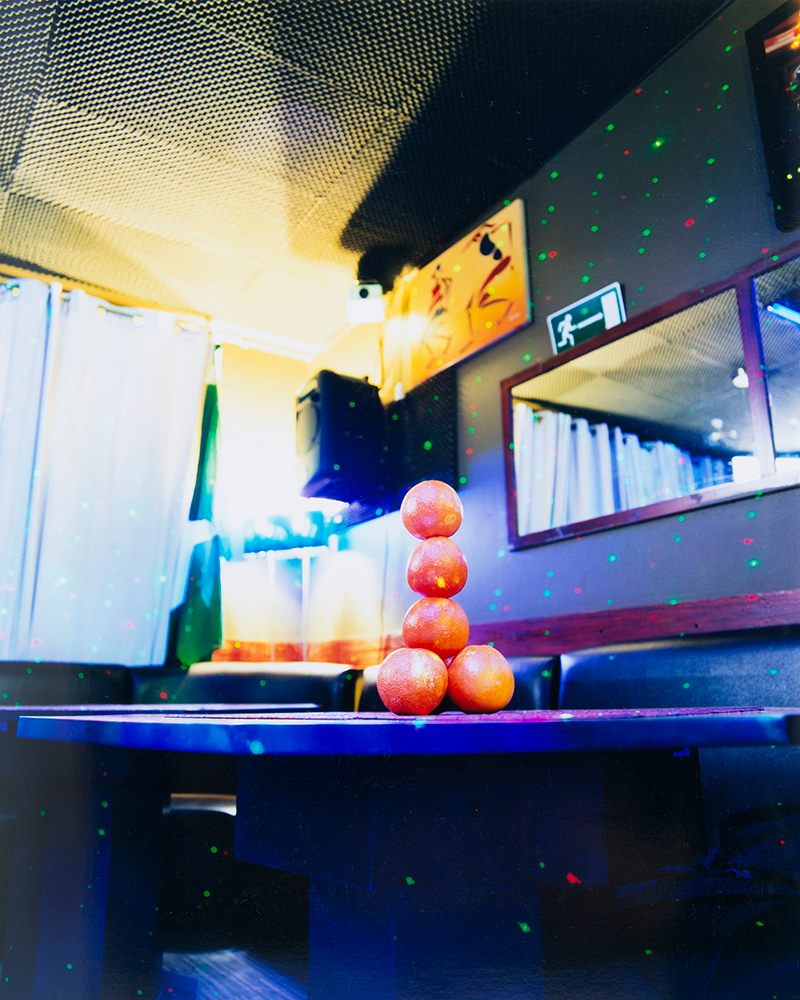
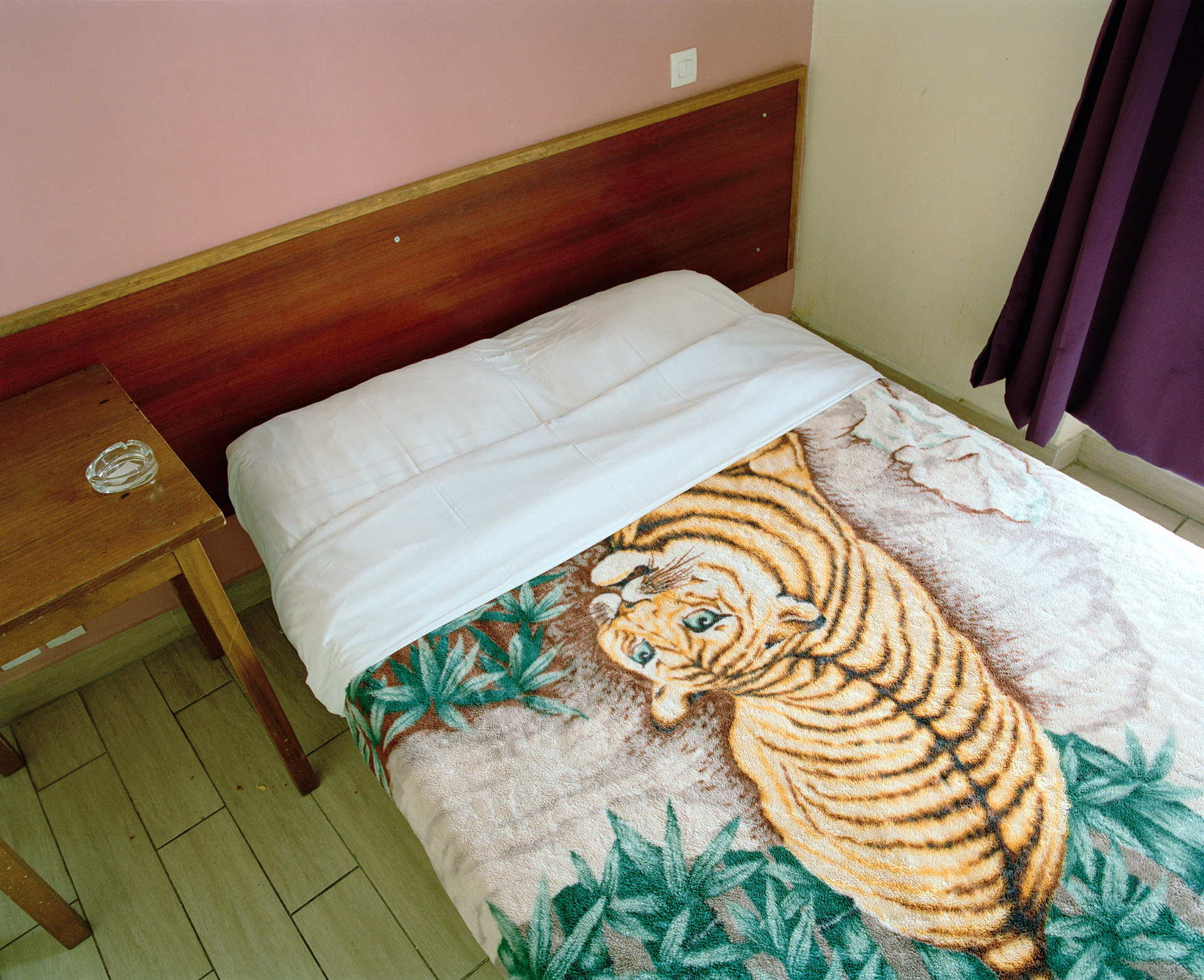
New and best
